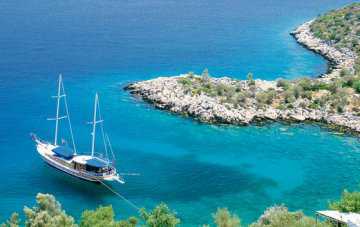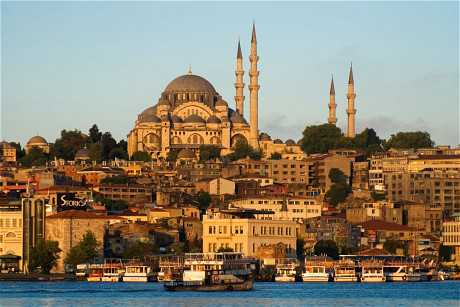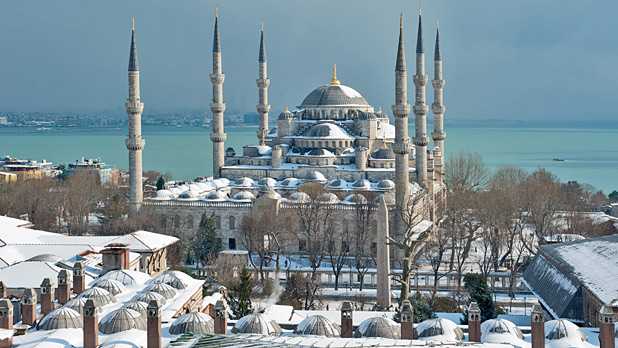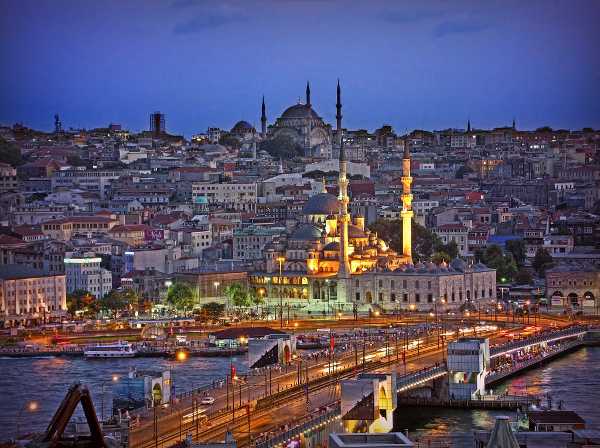By Karine Simonian
Armenia welcomes the Turkish initiative aimed at establishing a stability and cooperation platform in the Caucasus, President Serzh Sarkisian told media as he visited the country’s northern Lori province late last week.
“The Turks have said from the very outset that their initiative is not an alternative to any structure or format but is aimed at improving the atmosphere,” the Armenian leader stressed. “I consider it natural that we should welcome this initiative, we have no right to avoid any discussion, especially if it is aimed at strengthening our security.”
The issue was reportedly discussed by the two countries’ leaders on September 6 as Turkish President Abdullah Gul made a historic trip to Armenia at the initiative of his Armenian counterpart.
Official Ankara announced plans to create a Caucasus Stability and Cooperation Pact that would include the three South Caucasus countries plus two regional heavyweights, Turkey and Russia, following the brief but devastating war between Russia and Georgia over the latter’s breakaway province of South Ossetia in August.
In a recent interview with RFE/RL’s Azerbaijani service, Gul emphasized that the conflict between Armenia and Azerbaijan over Nagorno-Karabakh is not just a bilateral issue between the two Caucasus republics, but also affects the whole region.
“Peace and stability is in the interest of everyone and to have that we have to resolve problems. But to resolve the problems we have to have discussion and dialogue,” Gul said.
President Sarkisian expressed his satisfaction that the Turkish head of state also communicated the impressions of his Yerevan trip to the leader of neighboring Azerbaijan, with which Armenia is at loggerheads over the status of Nagorno-Karabakh, an ethnic Armenian enclave that declared itself independent from Baku after the collapse of the Soviet Union.
He further appreciated the offer of assistance that Gul said Turkey was ready to render in the settlement of the Armenian-Azerbaijani relations, if need be.
“I was glad to accept that offer because only someone not normal would reject assistance,” Sarkisian said, emphasizing the difference between ‘assistance’ and ‘mediation’.
Sarkisian also said that any step that can help the Minsk Group of the Organization for Security and Cooperation in Europe (OSCE) in settling the Nagorno-Karabakh problem should be regarded as positive.
Meanwhile, Armenia’s Foreign Minister Edward Nalbandian reiterated Yerevan’s position as he received a senior visiting U.S. diplomat on Saturday.
During the meeting with U.S. Deputy Assistant Secretary of State Matthew Bryza, Nalbandian said Armenia welcomes the steps aimed at building confidence and developing cooperation in the region, the Armenian Foreign Ministry reported.
He also gave a positive evaluation to the Turkish president’s visit to Armenia, describing it as a good stimulus to starting a ‘serious dialogue’.
Bryza, who is the U.S. co-chair of the OSCE Minsk Group along with representatives of Russia and France, met with the Armenian minister as part of his regional tour to discuss the Nagorno-Karabakh peace process as well as the recent developments in the region, including the war in Georgia and Armenian-Turkish relations.
Before meeting with Bryza, Nalbandian paid a visit to the Georgian capital where he also presented the latest developments in the Nagorno-Karabakh peace process and opportunities for normalizing relations between Armenia and Turkey.
In Tbilisi Nalbandian was received by the country’s Prime Minister Lado Gurgenidze and President Mikheil Saakashvili.
The Foreign Ministry’s press office quoted Nalbandian as stressing during his meeting with President Saakashvili that Armenia is one of the countries most interested in stability, security and peace in the neighboring republic. He reportedly said that apart from the fact that about 70 percent of Armenia’s foreign trade is made through Georgia, “two peoples have bonds of centuries-old friendship.”





